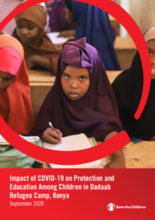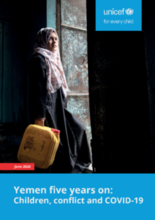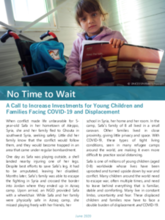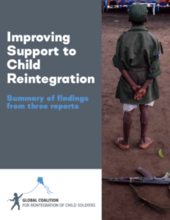Displaying 181 - 190 of 516
The overall aim of the present study was to expand knowledge about depression among unaccompanied refugee minors in the years after they were granted protection in Norway.
This article examines the current Common European Asylum System (CEAS), which includes several measures to protect unaccompanied minors.
The authors of this study applied a sector‐wide analysis protocol that harmonized components of the Humanitarian Programme Cycle by the Inter‐Agency Standing Committee and of a framework to characterize the governance of early childhood development and education (ECDE) systems.
With this report, Save the Children aims to assess how children have been affected since the beginning of the so-called ‘refugee crisis’.
Save the Children conducted research in three refugee camps in Dadaab in Kenya which explored the impact of COVID-19 on children’s education, young mothers’ livelihoods and gender-based violence. This study highlights programmatic adaptations made in response to COVID-19, identifying what has worked well or less well and considers practical recommendations for the sector.
The Girls on the Move Initiative is a global series of action research that puts girls at the centre. It has been conducted across different regions within existing Save the Children programmes. Each regional study generates targeted evidence to address knowledge gaps in current literature and programme approaches, and engages Save the Children teams to immediately strengthen ongoing interventions for girls in different stages of migration, notably during transit and arrival.
This report from UNICEF explores the situation of children during the humanitarian crisis in Yemen, including the impacts of the COVID-19 pandemic. It outlines UNICEF's response to the crisis and presents a global call to action.
This Call to Action outlines some of the impacts of both displacement and COVID-19 that are threatening the positive development of many young children around the world. It calls for governments and donors honor existing commitments, ensure inclusion of young children and families in public systems and take FIVE immediate actions.
This document is a summary of three papers on how to effectively support children who have exited armed forces and armed groups and contains actionable recommendations at the end to stimulate thinking and action to assist these most vulnerable children and their communities.
This integrative literature review studies well‐being of unaccompanied asylum‐seeking children through the three modes of recognition—love, rights and solidarity—as conceptualized by Axel Honneth.






